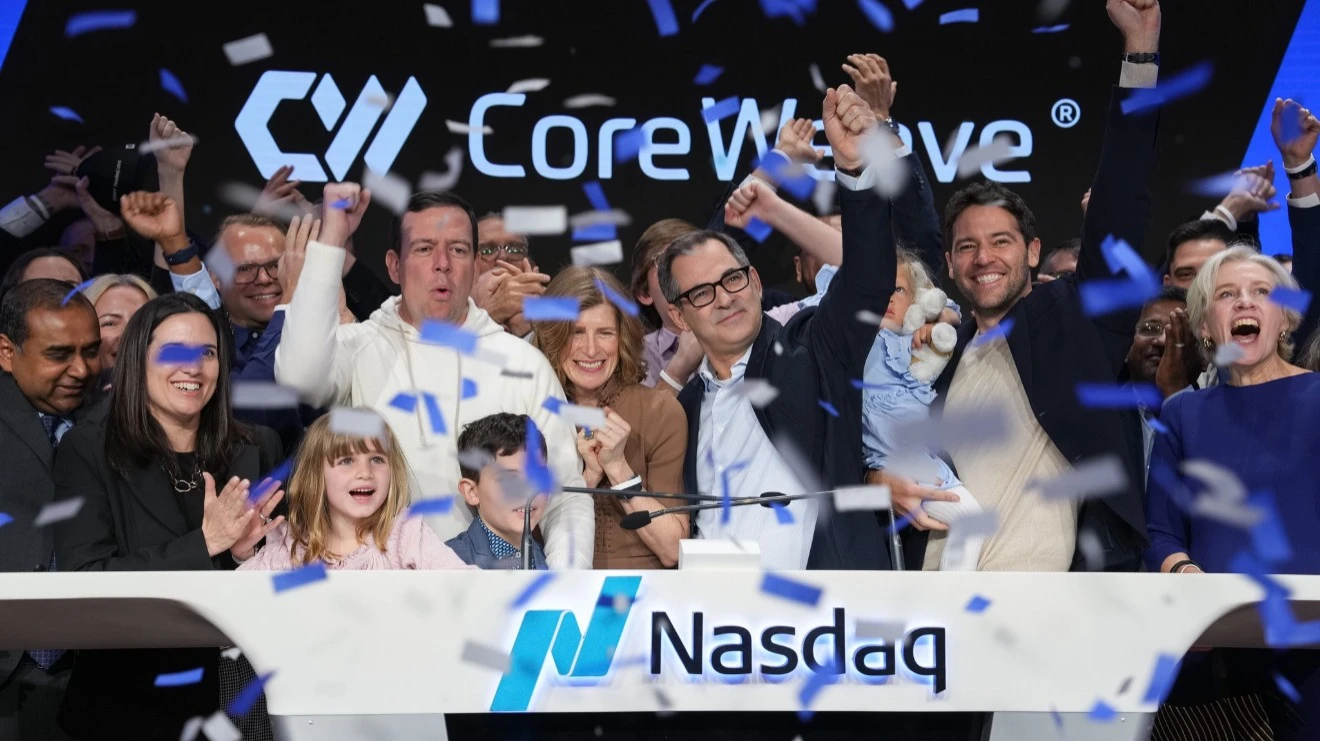CEO of 'Nvidia protégé' joins top 500 billionaires after stock rises 300%
Michael Intrator earned inclusion on Bloomberg's list about 80 times faster than other contributors have been able to do so

Shares of CoreWeave, a provider of cloud computing for AI, have risen more than 300% in three months, helping the company's CEO to enter Bloomberg's list of the 500 richest businessmen in the world. The agency now estimates Michael Intrator's fortune at about $10.3 billion. In addition to him, other co-founders and early investors have been the beneficiaries of the growth of Nvidia's protégé company's shares, which are now being compared to "meme" stocks.
Details
CoreWeave CEO Michael Intrator has been named one of the top 500 richest people in the world by Bloomberg, the agency reported. After the company's shares have soared more than 300% since its IPO in March, Intrator's fortune has soared to $10.3 billion. That puts him at No. 311 on Bloomberg's list: higher than the likes of Netflix chairman Reed Hastings, Spotify chief Daniel Ek, billionaire Bill Ackman and filmmakers George Lucas and Steven Spielberg, according to the rating.
Particularly impressive is the speed with which the CoreWeave CEO was able to get on the list, Bloomberg noted. While other participants of the rating, on average, need more than three years to grow their fortunes from $5 to $10 billion, Intrator went this way in just 12 days.
CoreWeave declined to comment on the condition of its CEO.
Thanks to the growth of CoreWeave shares, other persons associated with the company have also increased their fortunes. Thus, the co-founder and strategic director of the company Brian Venturo's capital is now estimated at $6.4 billion, and development director Brannin McBee's - $4.7 billion, Bloomberg writes. Early investors are on the plus side, too. Documents show that the trust of billionaire Leslie Wexner - founder of L Brands (which owns the Bath & Body Works chain) - invested in CoreWeave back in the early funding stage in 2019 and now owns a stake worth $2.9 billion. Board member Jack Cogen, formerly head of investment firm Natsource Asset Management (which is where Intrator and Venturo met), now controls $3.4 billion worth of shares, Bloomberg noted.
In addition, early investors include Stephen Jamison, a former Morgan Stanley trader. He was a CoreWeave board member until April 2023, and his current stake is valued at $2.9 billion. Like Wexner, he participated in an early 2019 investment round, investing in the company, which was then valued at just $9 million, Bloomberg notes, citing PitchBook data.
Context
CoreWeave's IPO, happening in March 2025, was initially lackluster: the company had hoped for a $35 billion valuation but ended up floating at a $23 billion valuation, lowering its share price before going public. As CEO Michael Intrator later told Bloomberg, the deal might not have happened at all if Nvidia, one of CoreWeave's biggest investors, hadn't made a $250 million bid.
Nevertheless, CoreWeave's securities have skyrocketed since going public, and the company is now one of the top 30 best Nasdaq stocks among new issuers, Bloomberg notes.
CoreWeave's stock began to rally strongly following the release of a quarterly report that beat revenue forecasts, and continued after news that Nvidia increased its stake in the company by more than a third. Amid the excitement and interest from private investors, the stock began to be compared to "meme" stocks, whose rapid growth is attributed to excitement among retail traders rather than actual financial performance. The company's stock price-to-projected earnings multiple is 10, while the average for companies in the S&P 500 index is about 3, noted Bloomberg.
Contrary to the continued enthusiasm of retail investors, Wall Street is wary of the newcomer to the Nasdaq exchange. More than half of analysts tracking CoreWeave's performance are neutral and recommend holding the company's shares in their portfolios (Hold rating), while just over a third advise buying. The consensus target price is $84.2 and implies a 47% drop from the June 25 close.
This article was AI-translated and verified by a human editor
